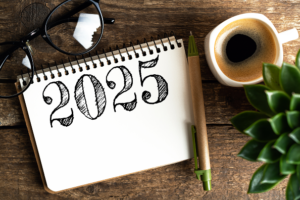
5 Biežākās problēmas, ar kurām cilvēki saskaras, pērkot kafiju
Pērkot kafiju, cilvēki bieži saskaras ar vairākām problēmām. Pirmkārt, ir grūti izvēlēties starp plašo kafijas veidu un zīmolu klāstu. Otrkārt, daudziem ir grūtības noteikt kafijas
Truth, myths, and why your stomach might start singing opera. Morning without coffee? For some, it's a daily lifesaver, for others, it's a nightmare. For many of us, the first thing our hand reaches for in the morning, still half asleep, is the coffee machine button. But when we haven't eaten a bite of breakfast yet, the question arises – is it okay to drink coffee on an empty stomach?
Spoiler alert: yes, you can. But there are a few things you need to know.

Coffee contains caffeine, a natural stimulant that affects the central nervous system, speeds up metabolism, and improves alertness and concentration. However, if caffeine enters the body on an empty stomach, it can cause various reactions that should be taken into account.
Black coffee, without milk and without a small croissant, stimulates the secretion of stomach acid. This acid is good when you eat – it helps break down food. But if food is delayed... stomach acid starts to eat away at whatever is at hand – the stomach lining.
With prolonged coffee consumption on an empty stomach, some people may experience:
However, it is important to emphasize that these symptoms are not the same for everyone. Many people can drink coffee on an empty stomach for years without any complaints. It depends on the individual sensitivity of the body and the health of the stomach.
Another frequently mentioned aspect is that coffee increases levels of cortisol, the so-called "stress hormone." Cortisol is naturally secreted in the morning, helping us wake up, but caffeine can further stimulate its secretion. Excessively high cortisol levels can affect sleep quality and the immune system in the long term, and can even cause anxiety. Although this effect is not particularly dangerous for healthy people, regularly consuming large amounts of coffee on an empty stomach can affect your overall well-being.
To avoid possible negative consequences, it is advisable to follow a few simple tips:
After a night's sleep, the body is slightly dehydrated, so you should first restore your fluid balance with water. This will help prepare your stomach for caffeine.
You don't need to eat a big breakfast right away – even a small snack or piece of fruit before your coffee will help neutralize the acid in your stomach.
Adding milk or a plant-based beverage reduces the acidity of coffee and makes it gentler on the stomach.
Coffee can also be drunk on an empty stomach, but it is advisable not to exceed 1–2 cups and to assess how you feel. If you experience negative symptoms, adjust your morning routine.
The answer is not clear-cut. You can drink coffee on an empty stomach if you do not have stomach or health problems and do not feel any discomfort. However, people with a more sensitive digestive system or hormonal imbalance are advised to enjoy coffee after a light breakfast.
Like any dietary choice, this one is also individual – listen to your body and adapt your habits to your well-being and health.
Interesting fact (so you can impress your colleagues at the coffee machine): Studies show that the human body absorbs caffeine best between 9:30 and 11:30 in the morning, as cortisol levels naturally drop during this time.

Pērkot kafiju, cilvēki bieži saskaras ar vairākām problēmām. Pirmkārt, ir grūti izvēlēties starp plašo kafijas veidu un zīmolu klāstu. Otrkārt, daudziem ir grūtības noteikt kafijas

Tuvojoties Valentīndienai, romantiskas noskaņas pārņem ikvienu, un arvien biežāk tiek meklētas gardas, bet vienkāršas receptes, ar kurām iepriecināt mīļotā cilvēka garšas kārpiņas. Ja vēlies desertu,

Mūsdienās arvien lielāka uzmanība tiek pievērsta ilgtspējai, atbildīgam patēriņam un resursu taupīšanai. Vienlaikus pasaulē joprojām tiek izmesti miljoniem tonnu pilnīgi derīgas pārtikas, tostarp produkti, kas

Kafija 2025. gadā joprojām ir viens no visbiežāk patērētajiem dzērieniem, un arvien vairāk cilvēku pievērš uzmanību ne tikai cenai, bet arī kvalitātei, izcelsmei un pagatavošanas

Kafija ziemā kļūst par siltu rituālu, kas palīdz sākt rītu, paņemt pauzi dienas vidū vai noslēgt vakaru mierīgā noskaņā. Tieši aukstajā gada laikā daudzi meklē

Lielākā daļa cilvēku mājās negatavo kafiju ar svariem, termometriem un hronometriem. Un tas ir pilnīgi normāli. Ikdienā kafiju gatavo ar to, kas ir pa rokai

Kafija pasaulē ir viens no populārākajiem dzērieniem, taču tās kvalitāte var ļoti atšķirties. Viena kafija ir aromātiska, tīra un patīkama, bet cita rūgta, plakana vai

Ir tas gada brīdis, kad visi izliekamies, ka dāvanu izvēle ir “tik patīkams process”. Protams. Realitātē tu, visticamāk, klīsti starp bezpersoniskiem komplektiem un aromatizētu ziepju
Pieraksties akcijām un jaunumiem
saņem 10% atlaidi pirmajam pirkumam
